If you were really healthy, you would sleep well, you would have enthusiasm for doing things, you would enjoy eating and being with friends. You wouldn't dread climbing stairs, or having to run after a ball. If you were healthy, you wouldn't have an excess weight problem.
The Young Ones - BBC Documentary
I recently watched a BBC TV health programme called "The Young Ones" (2010) featuring six people who were celebrities in the UK during the 1970's. These people were approaching 80 or a little more. They were Lionel Blair, 79, entertainer; "Dickie" Bird OBE, 77, cricket umpire; Derek Jameson, 79, journalist (Died at 83); Kenneth Kendall, BBC news reader, 84, (Died at 88); Liz Smith, 89, actress; and Sylvia Syms, 77, actress. (Checked December 2016, Blair, Bird, Smith and Syms are all still active.)
Of the six only Lionel Blair was still a smoker. He looked fit and walked well, but his fitness tests were as bad as the others, and his lung capacity was very poor. "Dickie" Bird, had suffered a stroke in 2008, and wasn't walking with any confidence. Kenneth Kendall had suffered a fall, was overweight, and had lost his confidence, especially on stairs. Derek Jameson, was even more overweight, walked with a shuffle, and couldn't put on his socks or tie his shoe laces. Liz Smith, the eldest at 89, was walking in a shuffle with two sticks. She had suffered three strokes, she was slim and cheerful, but regretted that she could no longer leave the house. Sylvia Syms, was overweight, she struggled to carry her own suitcase up a short stairway. "I struggle to walk around the house," she said.
At home they were all using the home help offered by the National Health Service. Help with housework, cups of tea supplied, help with dressing, the offer of a meal a day. They had all given up much of their independence. They didn't shop for daily supplies, had given up keeping pets, and dropped memberships in organizations. They had severed ties with their previous professional lives. Essentially they had retired to a chair, to watch television, and to do as little as possible. The less they did, the less capable they became. They lost energy and muscle strength and flexibility, and with that interest in the world "outside".
The programme design was to test if the amount of home help offered was more than needed, and was having the effect of making these people less capable, and more and more dependent.
We should know that in the life choices they make, the majority of people make themselves sicker than they might have been. This sickness gets progressively worse over many years, but people accept their declining health as "normal" and don't try to do anything about it. In a more sane world people would have acted 10 or 20 years earlier and avoided the future health crisis. The ability to walk is an important indicator of good health. As you'll see below, "Dickie" Bird, in a timed walking test walked 100m, and Derek Jameson could only manage 30m. This demonstrates the difference in general fitness you can easily observe on the street.
What you THINK, is critical here. The participants in "The Young Ones" thought that accepting home help was the right thing to do. "I'm old now, so I should expect to slow down". True to that decision, slow down they did, making a choice to become less and less fit.
That's why I'm encouraging you to THINK. There is nothing I can say that can be convincing. You have to discover what you should do for yourself. It's a choice. If you have not been doing your own research about your health, start to do so now. Most of the "how to be healthy" messages we live by, are designed by marketers and intended to make someone rich. That includes "five a day", the ideas that we need to "hydrate" by drinking more, the "low fat" and "lite" messages, "an apple a day," and "eat everything in moderation." These messages mislead you, and are intended to promote sales rather than health.
The BBC programme moved the six celebrities into a guest house decorated in the style of the 1970's. There was no home help, they were dependent on each other. Within two days all of them were much more assertive and active. They were attempting to do, and were doing things, they had avoided for years. As the week went on, their abilities kept expanding.
As part of the programme the BBC gave each of them an opportunity to use the skills that made them famous. All of them succeeded and found the experience enjoyable. Many of them questioned the wisdom of a previous decision to give up "work" entirely. Our society forces people into situations where they are "expected" to behave in certain ways, expected to retire, expected to take things easy, expected to accept help in all sorts of ways. In subtle ways your capability is questioned, and your ability and ideas are ignored. "Watching television isn't good for you." We should all learn to say, "No thank-you, I don't need help, I can manage."
Seven days later, Liz Smith, who came into the programme shuffling on two sticks and hardly able to walk six paces, walked 140 paces (about 50m) with a single cane and a little encouragement. In the official walking test the next day, she walked 20 paces and turned around without falling, and without a cane. Kenneth Kendall claimed that there was no difference for him, but he was standing taller, and his stride had lengthened. Lionel Blair, showed improvement in strength, flexibility and confidence. Sylvia Syms, was filmed running with two dogs, "I've struggled to walk for the last two years," she said, "I've been transformed". When she went home she began to give talks about her success, demonstrating her new-found fitness. Derek Jameson, who could only walk (shuffle) 30m at the beginning of the week, walked 60m at the end. But the real success story was stroke victim "Dickie" Bird, who walked 100m at the beginning of the week and 400m at the end.
Sylvia Syms remarked; "This understanding doesn't only apply to those over 70, this understanding applies to everyone." She is right of course. So what are the lessons we can learn?
First to be self motivated, don't give up control of anything you can do for yourself, even if it does seem to be harder than it used to be. Face up to life, get out of the house and be involved with other people. Keep in contact with the core skill set of your life, be a mentor, and find ways to keep those skills alive. Care about something, a cause, a garden, a pet, or a person, so that you have something purposeful to do every day. We can all choose to be much more involved with the community and to engage in work that's worth doing. Volunteer more. We can have a lot of control over how we age, in the process of making daily choices. Empower yourself, take charge of your life, and do something valuable with it every day.
Lionel Blair remarked, "I feel so much younger." An observer working for the BBC said that the results achieved in seven days were "Bloody inspiring."
Please take the time to understand how to improve your diet. There is nothing you can do to that will be more transformative of your life than to change from an unhealthy diet to a healthy one. The trouble is, they most people BELIEVE that the diet they are now eating is already healthy. I know I did. I lived by all the rules for 30 years. And i thought I was fit, until my DIET made me sick.
It's taken me three a years to achieve my present understanding. Learning and understanding and personal research comes first. Without new knowledge you can't move forward. Then your new knowledge, becomes a tool that you can use to do something. Each time you do that your learning will be extended, and when you make good choices your health will be improved. It's useful to talk to someone who's also on this journey.
Clip from the BBC
There was once a video available here, now gone. It showed how unfit the six celebrities had allowed themselves to get. Yet in just seven days, their ability to move and do things for themselves remarkably improved.
Celebrity Photos
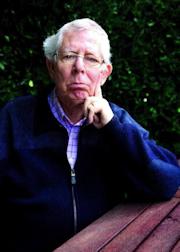 Derek Jameson |
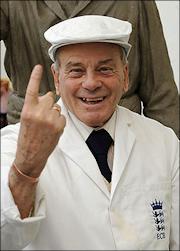 Dickie Bird |
|---|---|
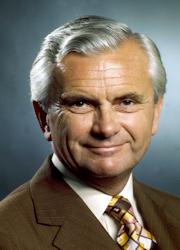 Kenneth Kendall |
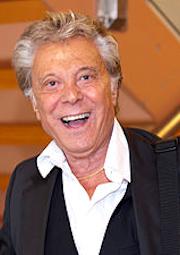 Lionel Blair |
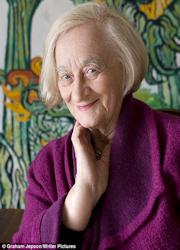 Liz Smith |
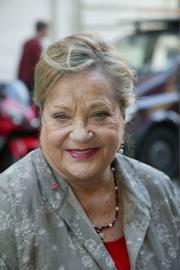 Sylvia Syms |
